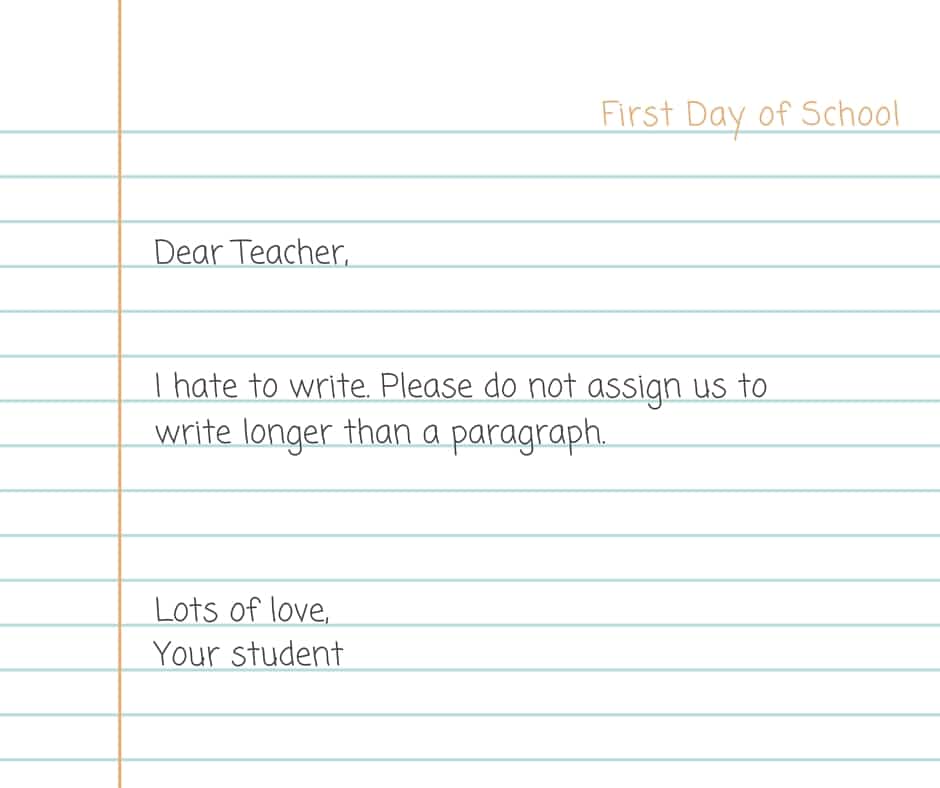I know that the thought of teaching students how to write seems so daunting.
But it’s simple—you just teach them to think.
If I can engage my students, get them writing about a new idea or an idea that they care about or an idea that they don’t quite understand but want to—then usually, their writing is better for it.
Whenever I teach AP Literature, I inevitably have students who bemoan their small vocabulary or simple sentence structure. But I always tell them that I would rather read complicated ideas written in simple language than simple ideas written in a complicated language. And I also tell them that the best way to get big words and interesting sentence structures into your writing is to write about ideas that are so original, insightful, and complicated that they necessitate precise words and compound or complex sentences.
When your ideas are good, your writing will be too.
But how do you teach students to think? This is the general process that I follow on a day-to-day basis in class. Think of it as calisthenics for the brain.
[fusion_builder_container hundred_percent=”yes” overflow=”visible”][fusion_builder_row][fusion_builder_column type=”1_1″ background_position=”left top” background_color=”” border_size=”” border_color=”” border_style=”solid” spacing=”yes” background_image=”” background_repeat=”no-repeat” padding=”” margin_top=”0px” margin_bottom=”0px” class=”” id=”” animation_type=”” animation_speed=”0.3″ animation_direction=”left” hide_on_mobile=”no” center_content=”no” min_height=”none”][bctt tweet=”Writing, think of it as calisthenics for the brain. ” username=”EducatorsRoom”]
I start off with a thought-provoking question. I have students do a five-minute free write on that question just based on whatever life experience they have. Questions like, “What are the pros and cons of believing in fate or that everything happens for a reason” or “Can you ever fully believe one person’s version of a story? Why or why not?” get students excited and thinking. The best questions, of course, can’t really be answered.
The next step is to do an in-depth close reading of a text. This could be a poem, short story, play, whatever. What matters is that we discuss the big ideas and that we use the evidence in the text as the basis for our discussion. I might give students questions to work on independently or in groups, or we might have a full class discussion. This is how we spend the bulk of the class period.
I always try to bring them back to the contradictions, complexities, and ambiguities of a text. If they think the answer is clear—that it is terrible to live your life believing in fate and there are no benefits whatsoever, for example—then I keep pointing to the evidence that questions those answers.
And then we try to come up with some ideas that bring it all together. So, maybe the author is saying that believing in fate makes you a passive observer in your own life but it also gives you meaning and purpose. Or we might decide that the poem is stating that there is no one version of the truth, but we all believe that the way we see things is the one version.
Then, when students go to write a longer essay on a text or even on an excerpt, I encourage them to follow this model. Think about their own ideas, closely examine the text, find the contradictions and complexities, and then figure out a way to bring it all together in an idea that doesn’t oversimplify.
When they can do this, they will write well.
If you like the sound of this process, and you’d like some very short passages with the questions done for you as well as prompts for longer assignments, check out this resource. Now tell me how do you get students to write in your class?

 [/fusion_builder_column][/fusion_builder_row][/fusion_builder_container]
[/fusion_builder_column][/fusion_builder_row][/fusion_builder_container]



